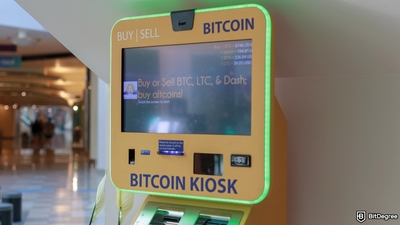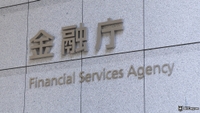Free Airdrop Season 7 is LIVE! Answer fun questions or do simple tasks to earn rewards from the $30K BitDegree prize pool. Participate Now ! 🔥
Samourai Wallet Founders Arrested Over Alleged Money Laundering Activities
Key Takeaways
- DOJ arrests Samourai Wallet co-founders, charging them with money laundering and operating without a license;
- The crypto mixer facilitated over $2 billion in illegal transactions and over $100 million in dark web money laundering;
- The authorities seized Samourai Wallet's web service and domain, as well as removed its app from the Google Play Store.
The United States Department of Justice (DOJ), along with other federal agencies, has arrested the co-founders of the crypto mixer Samourai Wallet.
CEO Keonne Rodriguez and CTO William Hill are both charged with one count of conspiracy to commit money laundering and one count of conspiracy to operate an unlicensed money-transmitting business.

Did you know?
Subscribe - We publish new crypto explainer videos every week!
What is Cardano in Crypto? (Easily Explained!)


Rodriguez and Hill are accused of laundering over $100 million, involving transactions linked to dark web markets like Silk Road and Hydra Market.
Samourai Wallet offered services like Whirlpool and Ricochet, designed to conceal the trail of crypto transactions, which complicates efforts to trace illegal funds.
FBI Assistant Director in Charge James Smith stated:
<Samourai wallet> provided criminals a virtual haven for the clandestine exchange of illicit funds, the facilitation of more than $2 billion in illegal transactions, and $100 million in dark web money laundering. The FBI is committed to exposing covert financial schemes and ensuring no one can hide behind a screen to perpetuate financial wrongdoing.
If convicted, Rodriguez and Hill could face sentences of up to 25 years in prison. As Hill was arrested in Portugal, he is also subject to extradition proceedings by the Southern District of New York's Attorney's Office.
In addition to the arrests, the operation also targeted the company's infrastructure by seizing its web servers and domain, as well as removing the Samourai Wallet app, which has over 100,000 downloads, from the Google Play Store.
The case reflects ongoing efforts by US authorities to curb the use of digital currencies in illegal activities, especially the crackdown on crypto mixers, which have emerged as the preferred choice for money laundering, according to blockchain security firm CertiK.
This follows similar actions against other crypto mixers like Tornado Cash, whose founders were also arrested following sanctions from the Office of Foreign Assets Control (OFAC) in 2022.






















